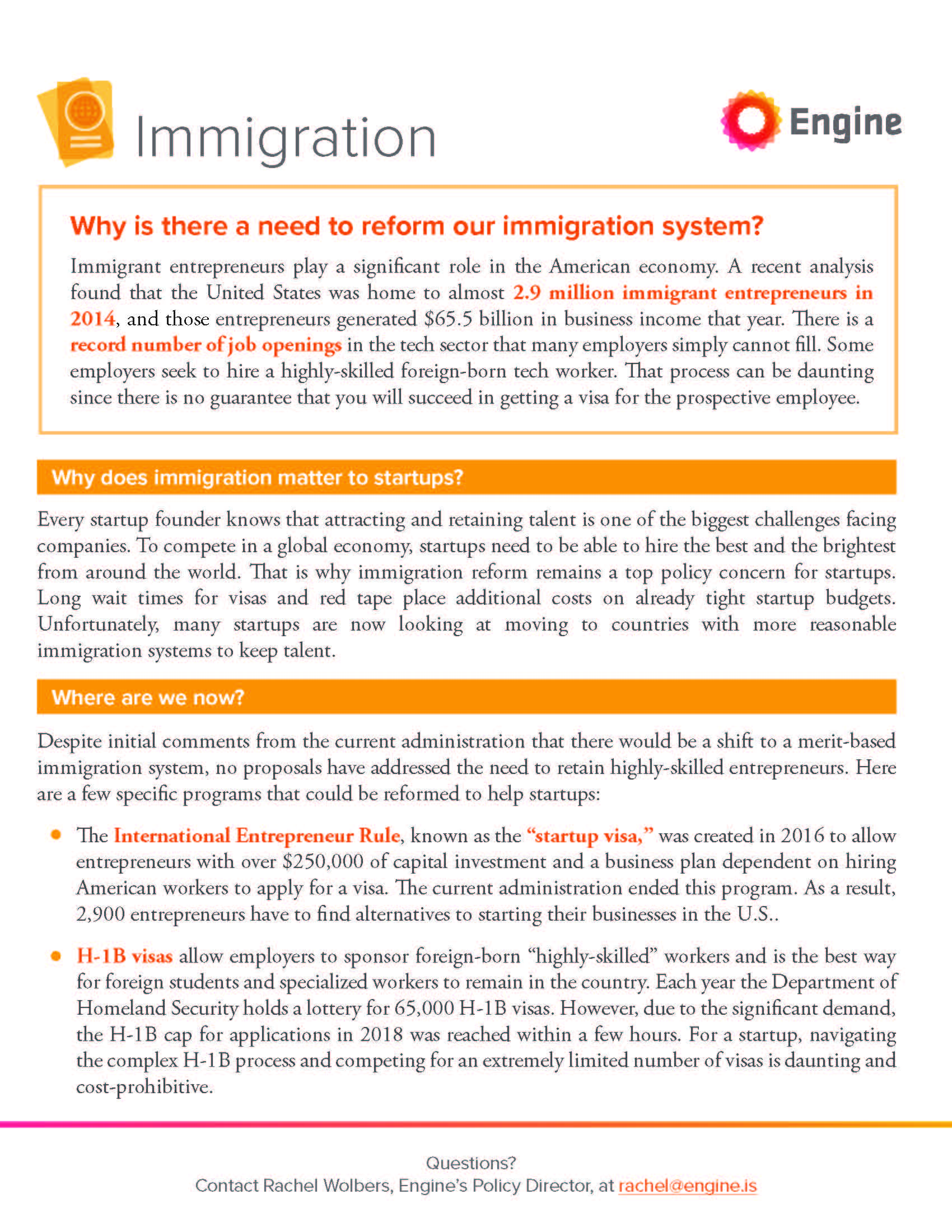Why is there a need to reform our immigration system?
Immigrant entrepreneurs play a significant role in the American economy. A recent analysis found that the United States was home to almost 2.9 million immigrant entrepreneurs in 2014, and those entrepreneurs generated $65.5 billion in business income that year. There is a record number of job openings in the tech sector that many employers simply cannot fill. Some employers seek to hire a highly-skilled foreign-born tech worker. That process can be daunting since there is no guarantee that you will succeed in getting a visa for the prospective employee.
Why does immigration matter to startups?
Every startup founder knows that attracting and retaining talent is one of the biggest challenges facing companies. To compete in a global economy, startups need to be able to hire the best and the brightest from around the world. That is why immigration reform remains a top policy concern for startups. Long wait times for visas and red tape place additional costs on already tight startup budgets. Unfortunately, many startups are now looking at moving to countries with more reasonable immigration systems to keep talent.
Where are we now?
Despite initial comments from the current administration that there would be a shift to a merit-based immigration system, no proposals have addressed the need to retain highly-skilled entrepreneurs. Here are a few specific programs that could be reformed to help startups:
The International Entrepreneur Rule, known as the “startup visa,” was created in 2016 to allow entrepreneurs with over $250,000 of capital investment and a business plan dependent on hiring American workers to apply for a visa. The current administration ended this program. As a result, 2,900 entrepreneurs have to find alternatives to starting their businesses in the U.S..
H-1B visas allow employers to sponsor foreign-born “highly-skilled” workers and is the best way for foreign students and specialized workers to remain in the country. Each year the Department of Homeland Security holds a lottery for 65,000 H-1B visas. However, due to the significant demand, the H-1B cap for applications in 2018 was reached within a few hours. For a startup, navigating the complex H-1B process and competing for an extremely limited number of visas is daunting and cost-prohibitive.



